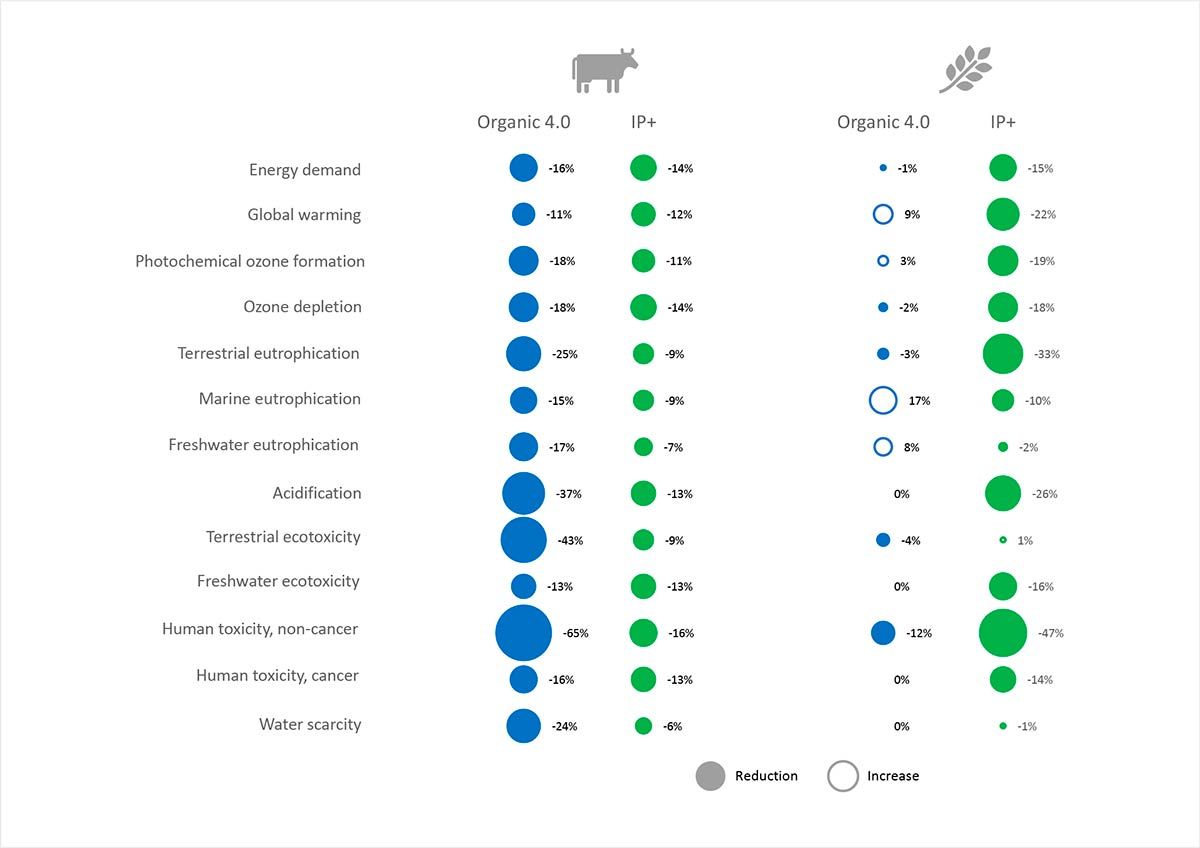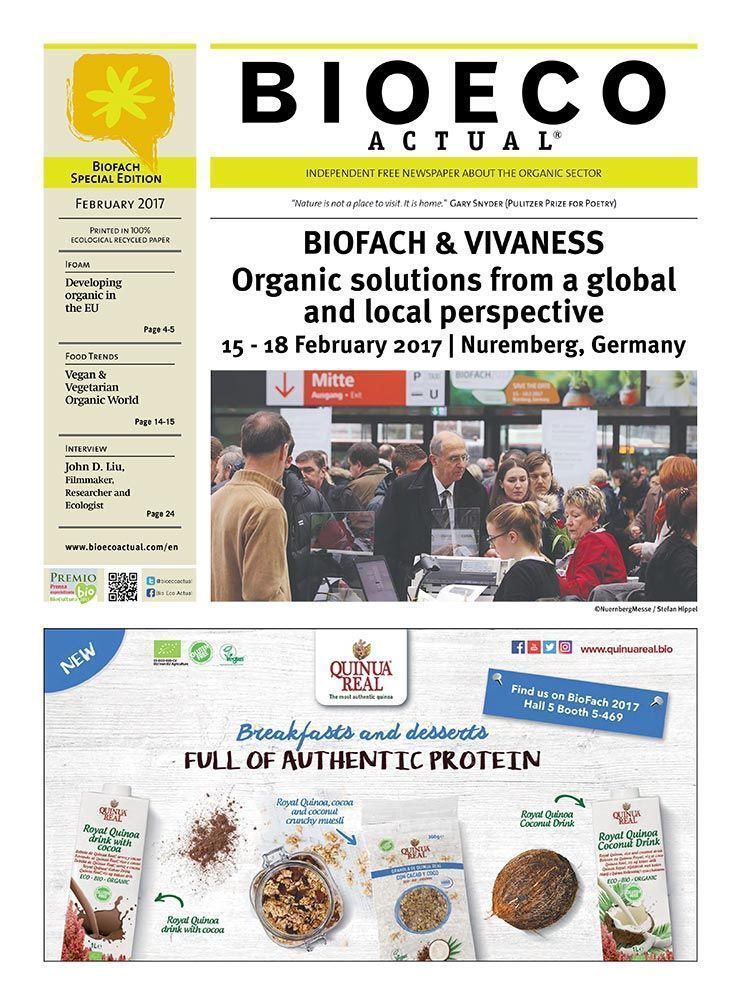Agriculture and food systems need to provide enough nutritious and high quality food for a growing population. The intensification of agriculture has led to a significant increase in production and food security globally. However, current agricultural practices are a major cause of environmental problems (e.g. biodiversity loss, GHG, pollution, soil degradation).

The necessary transition towards sustainable agricultural and food systems
Therefore, an environmentally sound and sustainable transformation of the agricultural system is needed. Overall, organic agriculture is known as a particularly environmentally sustainable form of agriculture with positive effects on environmental parameters like soil fertility, climate mitigation, biodiversity, resource use and animal welfare. Organic agriculture, therefore, can contribute to the accomplishment of multiple Sustainable Development Goals (SDG), such as climate action (SDG 13), responsible production & consumption (SDG 12), life below water & on land (SDG 14 & 15), zero hunger (SDG 2), clean water (SDG 6), good health & wellbeing (SDG3) and decent work conditions (SDG 8). Accordingly, the Federal Government of Germany, in its Sustainability Strategy, has set out the goal to increase the organically farmed area to 20% of the total agricultural land by 2030, as compared to 8.21% in 2017. Yet, organic agriculture can only be part of the solution. Conventional farming will need to become more sustainable as well. In this transition process, organic farming can play a central role as a source of ideas for the further improvement of sustainable practices.
Despite its proven benefits, there are still some limitations in the current organic agricultural system. For example, critics primarily address the lower yields compared to conventional farming (-19% to -45%) or the use of fungicides that are not in line with the principles of modern plant protection, e.g. copper. Defined standards and legally binding rules (cf. EU regulatory framework on organic production) are unique to organic agriculture and a major factor for its success. At the same time the rigid set of principles and prohibitions may jeopardize the uptake of new innovations and hinder further development of the current system.
Despite its proven benefits, there are still some limitations in the current organic agricultural system
The way forward for organic and sustainable farming systems
In a recently published study commissioned by the German Environment Agency, Haller et al. (2019) critically analysed the strengths and weaknesses of organic agriculture and formulated scenarios for the development of both organic and conventional systems. Scenario Organic 4.0 takes into account technological progress and innovation to reduce yield gaps and foresees a stronger orientation on sustainability, e.g. by reducing concentrate feeds in dairy systems. The strong focus on prohibitions would be replaced by case-by-case assessments of both old and new technologies. The IP+ Scenario further develops conventional systems and makes the objectives of integrated production obligatory. This scenario includes, for example, a reduction of the maximum N input per hectare and year to 120 kg, mandatory crop rotations and restrictions on pesticide use.
Farm-level simulations provided detailed insights into the potential impacts of these scenarios on the environment (Graph 1). For the Organic 4.0 scenario, results show that reducing the yield gap leads to a higher eco-efficiency in organic farming (impacts per kg product). However, this is challenged by higher crop nutrient needs and increased plant biomass on the field resulting from the increased yields and use of organic manure. This increases the risk of N losses in organic systems, leading to both higher global warming and water eutrophication potentials per hectare of farmed land. In Organic 4.0 dairy systems, the significant reduction of concentrate feed leads to substantial improvements in the environmental performance. With respect to the IP+ scenario, reduction in the fertilization level and concentrate feed lead to an improved environmental performance of conventional crop and dairy systems and thus reduce the performance gap to organic farming. To conclude, the model results show once again that high global eco-efficiency (environmental performance per kg of food) does not necessarily go hand-in-hand with high local environmental performance (per hectare) and highlights the trade-off between these two objectives.
In order to facilitate the necessary shift, further improvements are necessary. For a long time, digitalization in the agricultural sector was only seen as benefitting high-input, large scale farming systems. However, in the meantime, precision agriculture is also showing new possibilities for organic and low-input farming, e.g. precise weed control, early disease diagnosis, optimized fertilization by drones or controlled traffic farming. In the realm of plant protection, the development of more effective and less harmful measures is crucial. Existing products and methods must be optimized and new ones developed, e.g. new botanicals and biocontrol organisms. Moreover, to improve the eco-efficiency of organic farming systems, modern varieties that allow for higher yields under low-input cultivation practices are required. This must also include more resistant varieties, able to cope with more extreme weather conditions. Therefore, strong efforts in basic and applied research have to be made to further improve both organic and conventional agriculture systems.
‘Ways to further improve the sustainability of agriculture systems’ is a project funded by the German Environment Agency (UBA). Authors: Haller, L.; Thompson, M.; Riedel, J.; Moakes, S.; Stolze, M.; & Niggli, U. (2019).
Authors: Lisa Haller & Urs Niggli, Research Institute of Organic Agriculture (FiBL) | www.fibl.org
Subscribe at our Newsletter and be up to date with the latest news in the European Organic Sector
Bio Eco Actual, International Organic Newspaper
Read Bio Eco Actual











































